How Much Is My Website Worth? Explained For Beginners

After some time managing your website, you might decide that the right time to sell it profitably has come. But first, you need to know how much your website is worth.
However, it’s not easy to place value on a website since there are many things to consider.
That’s why we’re here to help you out. In this article, you’ll find answers to questions like how much your website is worth, what factors increase its value, and where to sell it.
Let’s get started.

Reasons to Sell Your Website
There are many reasons to consider selling your website:
- Hard to upkeep. Maintaining a website can be overwhelming and take too much time. You may have run out of ideas on how to improve its traffic and overall performance.
- Financial stall. If your website has been generating lower income for a while, it could be wise to sell your business while you can still make money.
- Investment opportunities. As a site owner, you might have lost interest in continuing your business. Selling your website will give you an opportunity to earn extra money and try your luck in another venture.
- Legal issues. If you’re facing partnership disputes and seeing no resolution in sight, selling your website might be the only way to get out of this situation.
- Making money. Buying and selling websites is a great online business idea that will bring you more revenue down the line.
Calculating Your Website’s Worth
If you want an estimation of how much is your website is worth, there are two ways to calculate it:
- Formal. Formal indicators take into account the legal aspects of your site, such as the capital you’ve invested in it to establish its net worth. This is best for resolving legal conflicts or obtaining loans.
- Informal. Informal valuation is determined by the potential of your website for scalability without looking into the legal context. If you simply want to know the future market value of your website, go with this assessment.
As a rule of thumb, your website’s worth is somewhere between 20 to 50 times its monthly revenue. For example, if your site earns $2,000 a month, its selling price will be between $24,000 and $100,000.
Many factors affect your website’s value, including profitability, income streams, organic and ad revenue breakdown, business model, traffic sources – we’ll discuss them in the next section.
Also, make sure to consider your potential buyers’ needs – usually, people look for sites with high transferability and minimal risks.
All in all, your estimated sale price should depend on how much the marketplace and you – the business owner – value the website.
Factors Increasing Your Website’s Value
Here are the parameters that will help you determine how much your website is worth.
1. Website Type
The type and niche of your website have a significant role in its monetization value.
For instance, eCommerce websites are more monetizable than other types of websites since they have better chances for future expansion.
Usually, people will search for websites with high growth opportunities since they’re more likely to drive revenue.
A website that has reached its development peak, on the other hand, will attract fewer customers since it’ll be more difficult and expensive to sustain.
Even if your website is in a good niche, consider if there’s high demand. Highlight any specific or unique features that increase its worth. Check if there are avenues to invest in marketing to keep the website ahead of the competition.
Buyers also look for websites that are easy to transfer. During the transfer process, you’ll need to be available and help them. Any complications may reduce your website’s worth. Try to consider whether the following aspects will cause problems for the future owner:
- Site configuration and management. Do you have all of the passwords and other data?
- Site development. Is it possible to develop the site using the platform it’s on?
- Suppliers. Will your suppliers agree to continue working?
- Team. Will your team continue working?
- Advertising. Will it be possible to promote their business and find more visitors on top of your existing brand presence?
Additionally, you may have to sign a non-compete agreement not to launch a similar business in the future. Although this is not mandatory, doing so might increase your website value. If else, you can always discuss your plans with the buyer.
2. Diverse Traffic
The net margin of your website also depends on your website traffic sources.
If a website relies on organic search traffic for customer acquisition, then it has higher income as you spend less on advertisement and promotions.
It doesn’t mean that paid traffic will bring down your website’s worth. As long as it has a high return on investment (ROI), clients will see no problem.
Algorithm updates can also affect your website’s value. That said, having multiple streams of traffic will be helpful to maintain your ranking on search engines.
Keep in mind that organic traffic shouldn’t depend on paid traffic or the other way around. Instead, they should work side-by-side, generating more revenue and visitors to your site.
As a result, your website will have less chance of losing its profits in case of unforeseen circumstances. Different monetization options that you can try include affiliate marketing and email newsletter campaigns.
Use a tool like Google Analytics to see detailed statistics of your website traffic performance. This way, you can estimate how much you spend on organic and paid traffic. Your buyer will also gain insight into the value of your traffic potential.
3. Domain Name and Age
Your domain value is another asset that has a significant impact on how much your website is worth.
Generally, having the domain extension .com will significantly increase your site’s value. The .com domain is the most expensive since it is the domain that most people are familiar with. Having .com also makes a brand look more professional.
A short and brandable domain address is also easier to monetize. If your domain is long and hard to memorize, the potential buyer might consider replacing it.
Moreover, the older your domain is, the bigger the price tag. An older domain means that your site has established authority on the worldwide web. It’s also better for search engine optimization (SEO).
4. Ownership of the Domain Variations and Social Media
Owning numerous domain names and social media profiles will increase your site’s profitability since your potential client will want to own your whole brand, not only the website.
Securing all versions of your domain, such as .com or .us, will help strengthen your business reputation in the eyes of potential buyers.
Or, to flip it around, your website’s worth will shrink if someone else has the other variations of your domain name.
Run a search on domain registrars to find out if other domain variations have already been taken. If not, try to register all the possible variants to increase your site’s sales price.
Domain Name Checker
Instantly check domain name availability.
Consequently, potential buyers will also appreciate any online and social media presence.
If you connect your website to a Facebook page that has a large following, you can demand a higher price. This can benefit the new owner since they can focus on developing the brand instead of building it from scratch.
Overall, the easier it is for the new owner to take over and manage the site, the higher your website value will be.
5. SEO
SEO is another indicator that you should focus on when evaluating your website.
A website with a high ranking position on Google and other search engines brings more organic traffic and revenue. Therefore, the quality of your website should closely match the Google algorithm systems.
Start with your site design. Usually, Google will categorize a website with a friendly user’s experience (UX) interface in the top ranking.
For that, ensure that your website has a straightforward navigation structure. In addition, your design must be suitable for exploring your site on mobile devices.
Check if the content on your website is optimized. Google and other search engines will generally pick up articles that are full of relevant keywords, internal and external links, as well as high-quality images.
Off-page optimization is equally important for Google ranking. Promote your website on forums or social media pages to get more inbound links.
Consult an SEO expert if you don’t know where to start. Make sure your website is free from any Google penalties due to algorithm updates.
On-page elements also impact SEO. For example, landing page statistics show that using custom calls to action (CTAs) can boost conversion rates by up to 42%, increasing engagement and signaling to Google that your site is valuable, which can improve SEO performance.
Website Value Calculator
There are many helpful internet resources for estimating the value of your site, such as website value calculators.
A website value calculator is an appraisal tool that will evaluate how much your site is worth based on different key indicators, from website traffic value to monthly revenue.
After you enter all the necessary information about your website, it will give an estimation of your website cost.
For more accurate results, try checking with multiple website value calculators and use their pricing suggestions as a guide.
We’ve compiled the list of the best free website value calculators and how to use them to streamline your sales process.
1. Empire Flippers
Empire Flippers is a reliable website value calculator that thousands of businesses trust.
This tool will give you in-depth reports of your website value from the lowest to the highest bid in a few seconds. Along with it, you’ll receive helpful tips to improve sellability. To find your website value, enter the details of your average net profit and number of visitors.
2. Flippa
Flippa is a website value calculator tool that specializes in providing accurate valuations for online businesses.
The service will compare your data with other similar sites in its sales database. This website worth calculator will analyze various parameters like domain name value and monetization method.
Flippa will then instantly show you the results of your website valuation, including how many prospective buyers you’ll have.
3. Siteprice.org
Siteprice.org is a multi-tasking website and domain value calculator that checks your website value by simply examining your domain URL.
Although it takes longer to load than other tools, Siteprice.org will estimate how much other online businesses are worth for comparison.
Ways to Sell Your Website
Now that you know how to value your website using online calculators, keep in mind the following tips on selling your site.
1. Research and Understand Your Target Market
It’s important to know who you’re selling to – it will help you choose the right strategy to appeal to their interests and goals. For instance, you need different strategies when selling an eCommerce website and personal blog.
Prepare in advance for any files and metrics that your buyer might require, like data from Google Analytics and income reports. Focus on the statistics that highlight your business’ performance and potential. Be as transparent as possible since people are more likely to buy from someone they trust.
Try to research sites that have a similar niche to get ideas on the price range you should set for your website to avoid underselling or overselling. Better yet, you’ll learn how to optimize your site functionality by following what they implement.
2. Use Your Network and Be Responsive
To reach more people, take advantage of popular social networks like Facebook and Instagram. Find out where most of the users hang out online and participate in the conversation. Keep them up-to-date by replying to their comments, messages, and feedback.
Try to promote your website as naturally as possible by balancing it with non-promotional engagement. For example, attach the link to your website auction in your profile and any posts you create. But don’t spam as it will only annoy other users.
In case you’re selling a niche website, it’s better to advertise on private listings or forums like Webmastersun. Be in touch with your closest contacts and tell them how your website can be of great value.
3. Focus On Long-Term Value
Buying and selling websites can be a quick way to make money online. However, remember that buyers will be looking for websites that can profit them in the long-term.
That’s why you need to optimize your website before selling it. Improve as many aspects as possible, from website speed to social media visibility.
Check if your website has any major issues. A well-performing website will be a good bargain for buyers since they’ll only need to put in a little work to get it up and running.
Take your time and avoid rushing your website development. If your website is low quality, it’ll be difficult to persuade buyers.
Furthermore, buyers will look into your website history. Therefore, even if your website is relatively new, provide complete information of your business name, age, and structure for legitimacy.
4. Have a Target Sale Price
Pricing a website can be a little tricky, so you need to strategize carefully before putting it up for sale.
Prepare in advance for the lowest and highest selling price. This way, when a customer asks for a lower price, you’re already prepared to negotiate with them.
If you want to sell faster, it’s better to lower your price range, but do not sell short. If you’re planning to improve your business quality while waiting for the right buyer, aim for a higher price.
A common rule is not to overvalue your website’s worth. Buyers will expect a return on investment within a few years, so always value your website accordingly. Ideally, get a figure by multiplying your annual revenue by three times.

Places to Sell Your Website
For buying and selling websites, one of the best ways to do it is through online marketplaces.
Selling on a marketplace means reaching more customers. Most online marketplaces support various business types, helping to target your buyers with more genuine interest.
Best of all, your marketplace will handle the promotions of your website, so you don’t have to spend more time and budget on marketing.
For those who are new to selling websites, working with website brokers will be helpful since they have years of experience in the field. They’ll provide you suggestions to maximize your sales as they know the worth of your website and the potential it has.
By relying on a reputable service, you’ll establish credibility for your business, increasing the value of your site.
Plus, selling your site on a professional marketplace will prevent any security problems. It will also ensure a smooth transaction process, therefore convincing more people to make purchases.
Make sure to consider listing fees as well. Generally, marketplaces charge from 5% to 15% of the final purchase price.
If you want to sell your site, Flippa is one of the biggest marketplaces. It will connect you to website brokers that categorize in different fields from eCommerce to blog content.
To list your website, you’ll have to log in. Then, provide descriptions and statistics to make your site stand out from the competitors. Enable the watched seller feature to notify your subscribers whenever you put up a site on auction.
Another great platform to sell websites and digital properties is Empire Flippers. The submission process is quick – it will only take a minute or two to complete the form. Once your listing goes live, Empire Flippers will connect you to more than 90,000 users.
Empire Flippers will assist you throughout the negotiation process so that your site can obtain its highest value. Better yet, it will also take care of transferring your site to the buyer.
Conclusion
Whether it is due to financial, technical, or personal reasons, sometimes you need to sell your site. For that, you need the right strategy and timing.
Numerous factors influence the final sale price of your site, from business structure and monthly revenue to traffic sources and domain variations.
To calculate your website’s worth, simply use the two to five times earnings multiplier formula. For a more precise evaluation, try the website calculator tools that we’ve recommended.
To maximize the value of your website, you’ll have to research your target market beforehand, promote it on social media networks, focus on long-term benefits, and set a clear price.
Selling a website on your own can be highly profitable since you will earn a full commission. However, if you want less hassle, consider listing your site on online marketplaces.
Now that you know how much your website is worth, we wish you good luck in selling it. Feel free to ask questions or leave feedback in the comment section below.
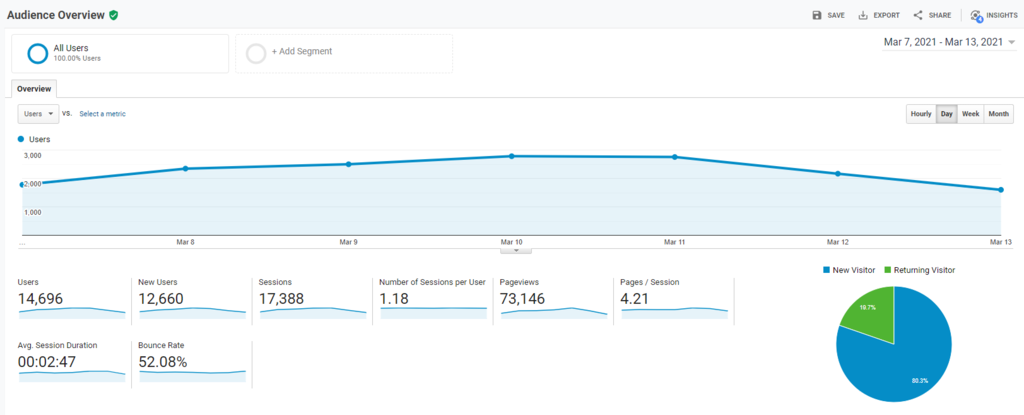

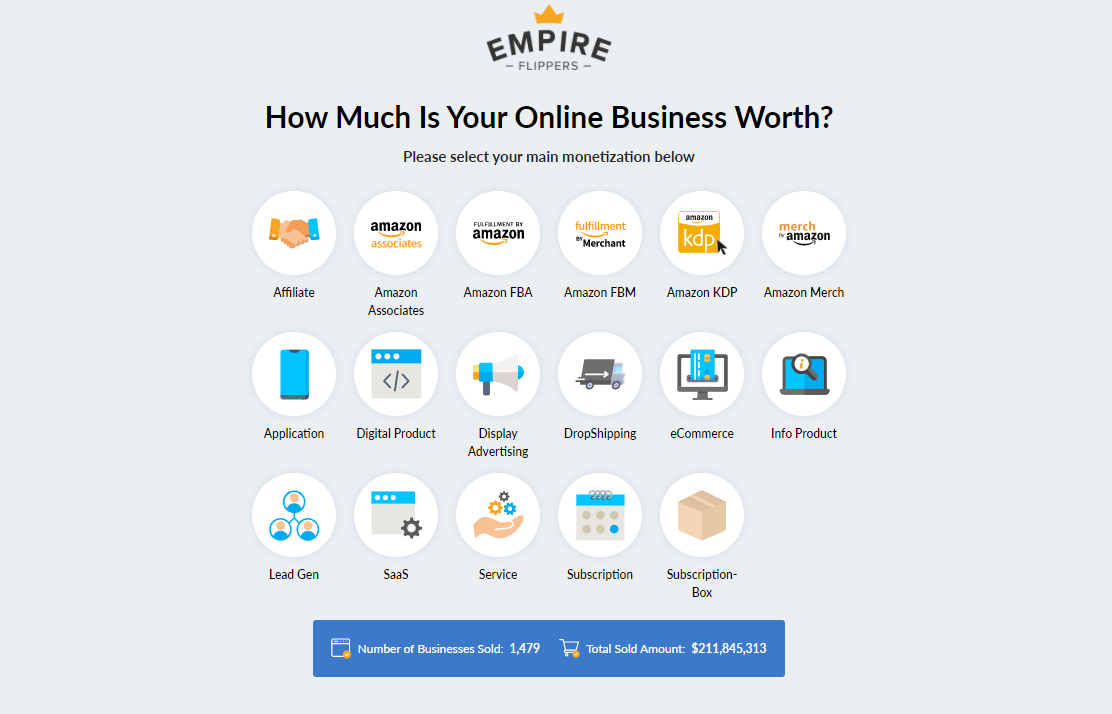
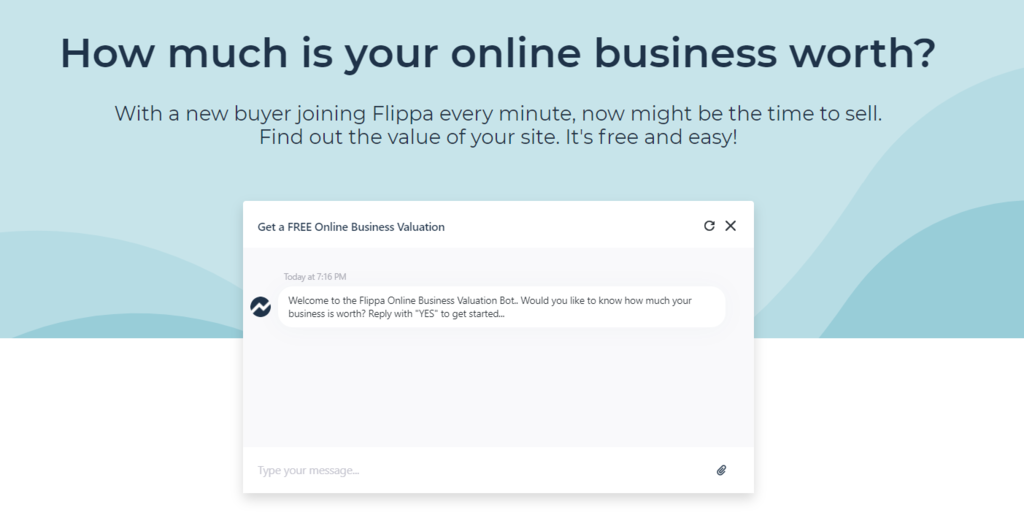
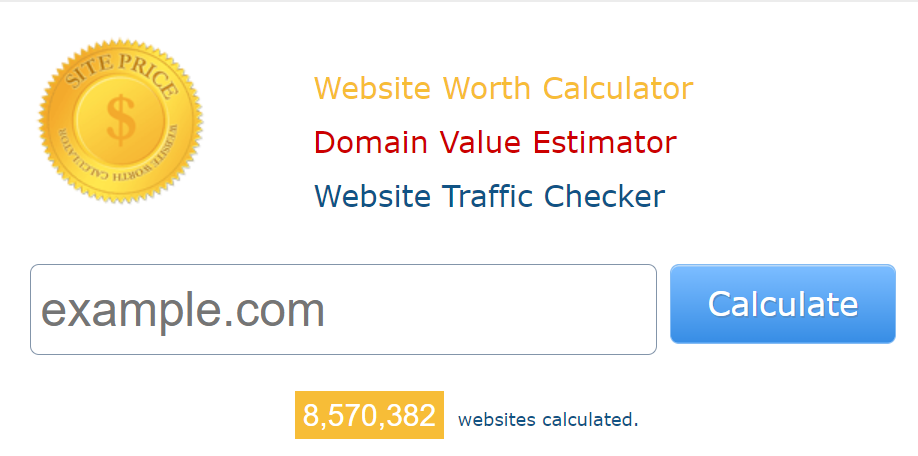
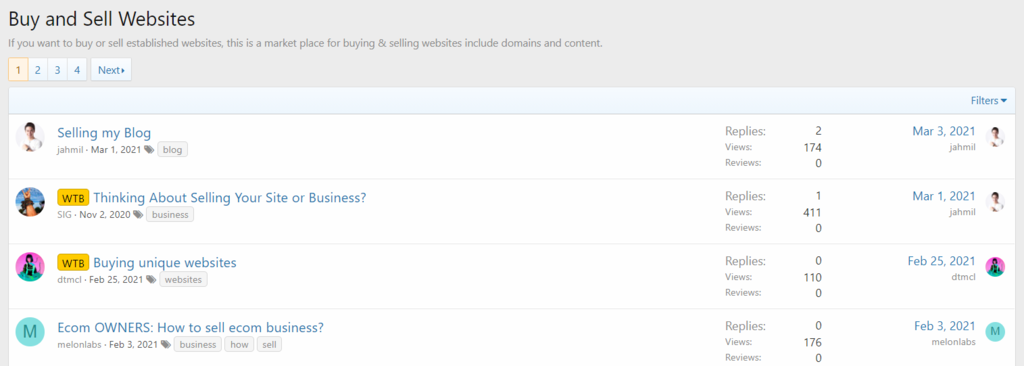

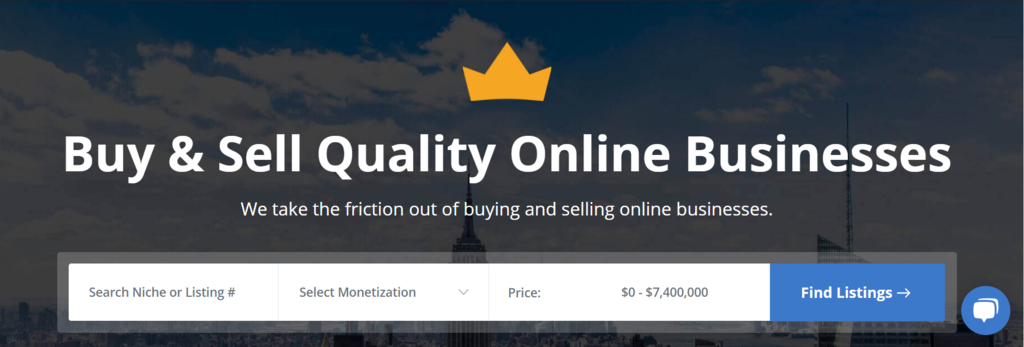


Comments
March 30 2024
nice